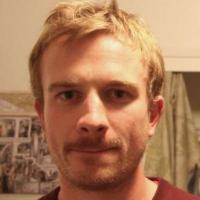SystemX Affiliates: login to view related content.

More accurate prognosis of hormone-positive early stage breast cancer patients offers the opportunity to make more informed follow-up choices, for example the addition of adjuvant chemotherapy. Traditionally, pathologists have prognosticated these cancers using conventional staging, tumor proliferation index, and a small set of morphological features manually scored from H&E slides. This information may be combined with the immunohistochemical (IHC) protein expression of the tumor. The rich information in these slides is summarized in terms of a simple univariate score such as the proportion of positively staining tumor nuclei. To investigate whether there is additional prognostic information in both the H&E and IHC slides, we constructed a prognostic model to predict recurrence risk from an exhaustive set of automatically calculated image features. On our whole slide cohort, the image-feature based recurrence risk binary classifier outperforms using clinical and expression covariates alone. Prognostic features include nuclei size, nuclear atypia, co-expression of ER and Ki67, lymphocyte density and stromal features. Our machine-learning based approach is a viable way to discover and integrate information holistically from different clinical prognostic data sources including clinical/demographic, H&E slide-based features and, for the first time, IHC stained slides.
David studied Physics and then (Information) Engineering at the University of Cambridge, followed by an MSc in Bioinformatics and Systems Biology at Imperial College. He completed his PhD in Machine Learning with Zoubin Ghahramani at the University of Cambridge as the Roger Needham Scholar at Wolfson College, funded by Microsoft Research. David came to Stanford to work with Daphne Koller (CS) before her departure to Coursera, and is currently a postdoc with Sylvia Plevritis (Radiology) and Jonathan Pritchard (Genetics).


